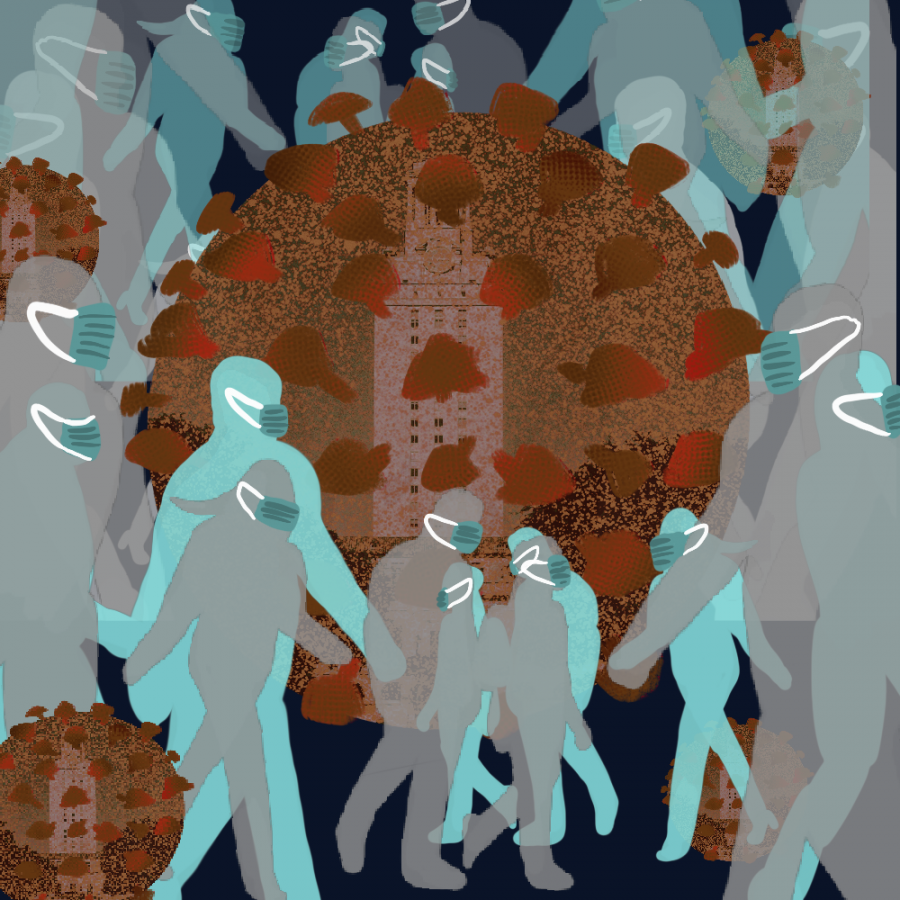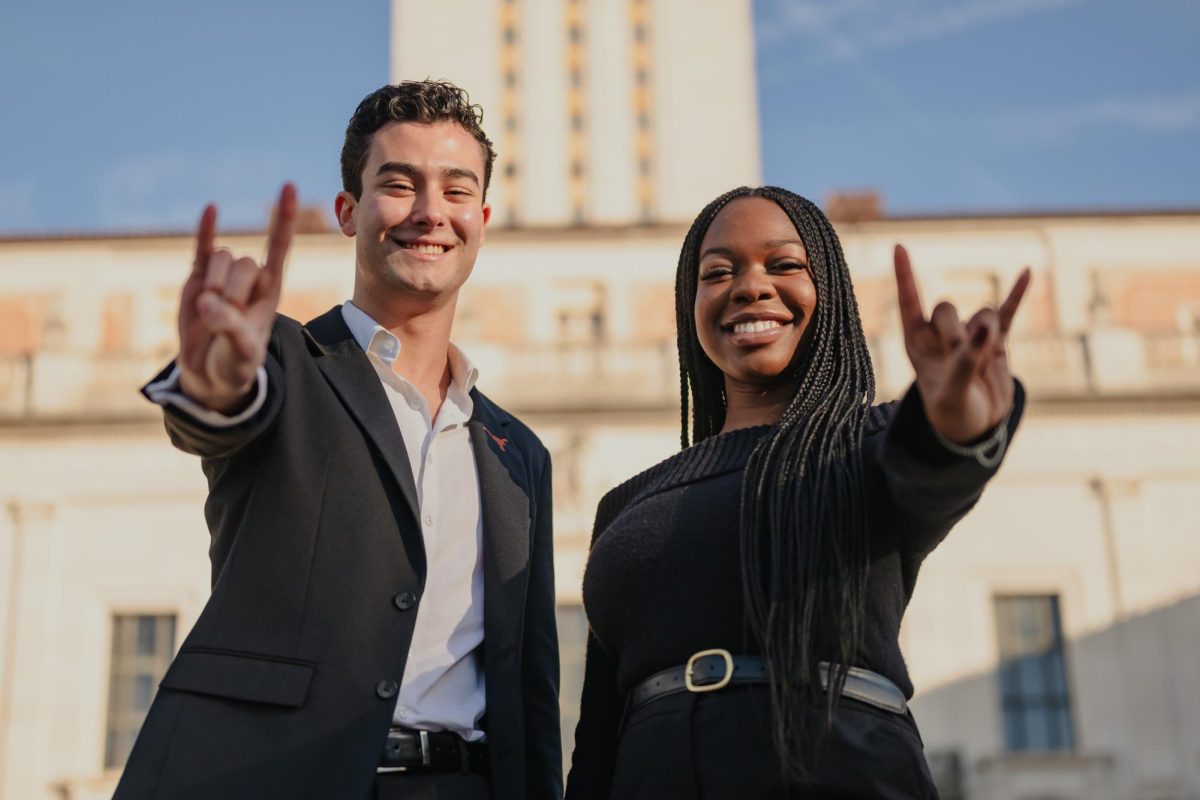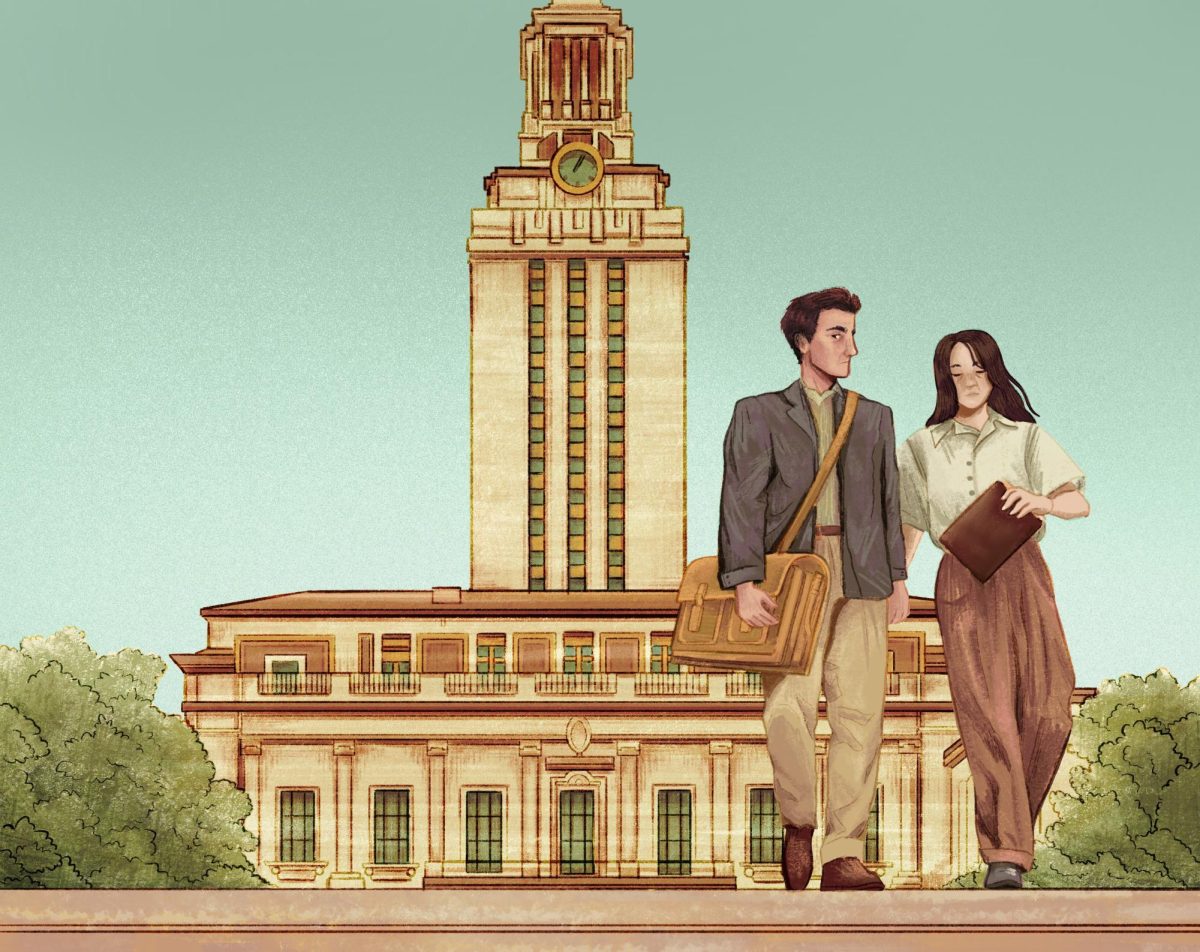The University of Texas community will begin this fall semester knowing a UT staff member, a custodial worker, died from COVID-19 while students and faculty weren’t on campus. The UT community will begin this fall semester knowing UT administration, in response to UT’s first COVID-19-related death, decided “there are no actions or new precautions to take on campus right now.”
On June 23, Interim President Jay Hartzell announced 3,500 of the 11,000 classes UT plans to offer this fall semester will be available online. This means only about 32% of classes this fall will be completely online, and a staggering 68% will be offered as either in-person or in hybrid mode, with both in-person and online instruction.
This is an unacceptable ratio, given the dramatic increase in the number of cases in Travis County and the state of Texas as a whole since March — the last time UT students were on campus.
UC-Berkeley, UCLA and UC-Irvine have announced their classes will be almost completely online this fall, as have several other universities comparable in size and budget to UT. Many universities in locations experiencing outbreak levels similar to Austin have done the same.
The decisions UT has made regarding student, staff and faculty safety put the UT community, especially its vulnerable members, at unnecessary risk. As the pandemic shows no signs of slowing down in Texas, our University continues to prioritize profit over the well-being of its students and faculty.
We implore UT and the UT System to rethink their fall operations decisions in light of how their students, faculty, staff and other valued community members feel.
We spoke to nine members of the UT community about UT’s decision to return to on-campus classes and promote in-person events. The following are direct quotes from these conversations.
Students and faculty fear that with UT’s current plans, an outbreak is inevitable.
“An infected person on average will transmit it, if unimpeded, to two to three other people. You can see how quickly that amplifies in a community, and that’s what we’re seeing in Texas and Travis County right now. Even if the majority of people are compliant, it only takes a few people to start breaking the rules to have a big outbreak on campus.”
— Jaquelin Dudley, molecular biosciences and oncology professor and associate director of the LaMontagne Center for Infectious Disease
“Inevitably, within a couple of weeks, people are going to get sick. It (feels) like (administrators) were trying to convince themselves, as well as us, that everything is going to be okay and not taking a real look at what is actually going on.”
–– Apoorva Chintala, Plan II and management information systems junior and UT Senate of College Councils membership director
“I have a lot of control in my home in San Antonio. But now I’m going to completely (lose) control of my situation when I go back to UT. Worst-case scenario is that somebody dies from COVID-19, which we’ve already seen happen, and nothing happened. I foresee a student getting seriously sick or dying, and that’s the only way we can all go home.”
— Hannah Garcia, government and humanities junior
Some students and faculty that do not have the option to teach online may have to put their education or career on hold.
“There are students who are concerned about how safe they’re going to be on campus. If they are immunocompromised, (they are) making those choices of whether or not to go to school or whether or not to take care of themselves. That’s just been really scary for faculty members who have disabilities and are trying to make that decision about whether or not their tenure will be adversely affected.”
— Nick Winges-Yanez, project manager of the Texas Sibling Network and the Healthy Relationships project and disability studies coordinator for Texas Center for Disability Studies
“If I was to go in tomorrow and say I was to withdraw from the semester or year, I would automatically lose my source of income, I would lose my health insurance, and I think that is enough to be a barrier for some people.”
— Rebecca Johnston, sixth-year history doctoral student
According to some students, current fall plans suggest profits, not community safety, are UT’s top priority.
“I feel UT is being tone-deaf right now. No one is going to buy The Big Ticket. I know they make a lot of money from football, but these student-athletes aren’t paid. They’re putting their health on the line for a system that historically exploits them, and UT still has the audacity to promote The Big Ticket. They should put student safety first, before anything else.”
–– Patrick Chukwurah, business junior
“The decisions being made are decisions to protect UT’s ability to generate wealth and UT’s institutional reputation. I think the calculus needs to be switched and UT needs to be asking, ‘How can we best protect our entire community?’ not just, ‘How can we stay in the top rankings as a university, not have to dip into our endowment, not have to spend more of our endowment on support for students, faculty and staff.’”
— Kate Cronin, sixth-year radio-television-film Ph.D. student
It seems many students, staff and faculty members just don’t feel safe teaching or learning in person this fall.
“I decided to teach online. The decision for all of the public health faculty (was) that we would all teach strictly online. There are definitely some concerns; one is the level of cooperation students will have. Obviously we’re not going to have some sort of police force in every classroom enforcing masks, so the onus is on the students.”
— Marilyn Felkner, public health clinical assistant professor
“One of my big issues with the reopening plan is face coverings. They definitely make a big difference, but the fact that UT isn’t providing face masks? I think we get one, but at least give us four or five for a week's worth of class. It doesn’t seem safe. It just doesn’t.”
– Colin Johnston, second-year urban teaching Master of Science in education student





















